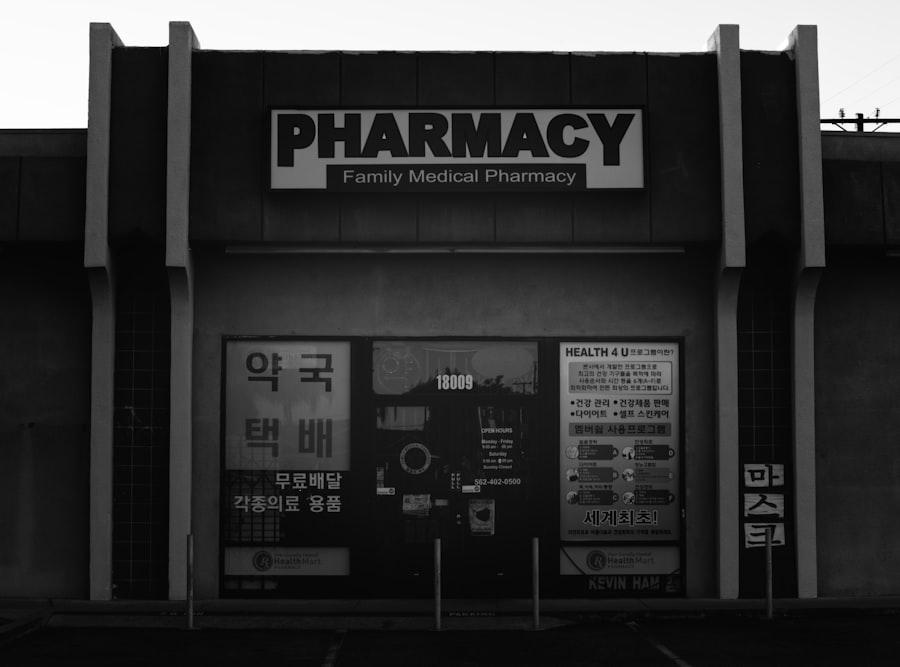Pharmaceutical marketing is a specialized field that encompasses the strategies and tactics used by pharmaceutical companies to promote their products, including prescription medications, over-the-counter drugs, and medical devices. This sector is characterized by its unique regulatory environment, which mandates strict compliance with laws governing advertising and promotion. The primary objective of pharma marketing is to communicate the benefits and risks of medications to healthcare professionals and patients while ensuring that all promotional activities adhere to ethical standards and legal requirements.
The complexity of this industry necessitates a nuanced understanding of both the medical landscape and the intricacies of marketing. The landscape of pharma marketing has evolved significantly over the years, driven by advancements in technology, changes in consumer behavior, and the increasing importance of digital channels. Traditional marketing methods, such as print advertisements and direct mail campaigns, are now complemented by digital strategies that leverage social media, search engine optimization, and targeted online advertising.
As patients become more informed and engaged in their healthcare decisions, pharmaceutical companies must adapt their marketing approaches to resonate with a more discerning audience. This shift has led to a greater emphasis on transparency, education, and patient-centric messaging in pharma marketing campaigns.
Key Takeaways
- Selecting the right ad agency is crucial for effective pharma marketing success.
- Top pharma ad agencies leverage specialized knowledge to create impactful campaigns.
- Digital marketing plays an increasingly vital role in reaching healthcare professionals and patients.
- Understanding current trends helps agencies adapt and deliver innovative pharma marketing strategies.
- Evaluating key factors and case studies can guide companies to maximize ROI in their marketing efforts.
Importance of Choosing the Right Ad Agency
Selecting the right advertising agency is a critical decision for pharmaceutical companies seeking to maximize the impact of their marketing efforts. An effective ad agency not only brings creativity and innovation to the table but also possesses a deep understanding of the pharmaceutical industry, including its regulatory landscape and market dynamics. The right agency can help navigate the complexities of compliance while crafting compelling narratives that resonate with both healthcare professionals and patients.
This alignment is essential for developing campaigns that are not only engaging but also legally sound. Moreover, a well-chosen ad agency can provide valuable insights into market trends and consumer behavior, enabling pharmaceutical companies to tailor their messaging effectively. Agencies with experience in pharma marketing often have established relationships with key opinion leaders (KOLs) and healthcare professionals, which can enhance the credibility of a campaign.
Additionally, they can leverage data analytics to measure campaign performance and optimize strategies in real-time. This data-driven approach ensures that marketing efforts are not only creative but also grounded in measurable outcomes, ultimately leading to a higher return on investment (ROI).
Top Ad Agencies in Pharma Marketing

Several advertising agencies have distinguished themselves in the realm of pharmaceutical marketing through their innovative approaches and successful campaigns. One notable agency is McCann Health, which has a global presence and specializes in healthcare communications. McCann Health is known for its ability to blend creativity with scientific rigor, producing campaigns that effectively communicate complex medical information in an accessible manner.
Their work often emphasizes storytelling, making it easier for audiences to connect with the brand’s message. Another prominent player is WPP’s Ogilvy Health, which focuses on creating integrated marketing solutions for pharmaceutical clients. Ogilvy Health combines traditional advertising techniques with digital strategies to reach diverse audiences effectively.
Their campaigns often utilize data analytics to inform creative decisions, ensuring that messaging is tailored to specific demographics. This agency has been recognized for its ability to drive engagement through innovative digital platforms while maintaining compliance with industry regulations.
Case Studies of Successful Pharma Marketing Campaigns
| Pharma Company | Campaign Name | Objective | Key Strategy | Metrics of Success | Outcome |
|---|---|---|---|---|---|
| Pfizer | Get Old | Raise awareness about aging and health | Storytelling through digital content and social media | Over 10 million video views, 500k social shares | Increased brand engagement by 35% |
| Novartis | Heart Health Awareness | Educate patients on heart disease prevention | Interactive online tools and patient testimonials | 20% increase in website traffic, 15k tool uses | Improved patient knowledge and adherence |
| Johnson & Johnson | Stop the Spread | Promote vaccination awareness | Multi-channel campaign including TV, social media, and events | Vaccination rates increased by 12% in target areas | Enhanced public trust and vaccine uptake |
| Roche | Know Your Risk | Increase early cancer screening | Personalized risk assessment tools and influencer partnerships | 30k risk assessments completed, 25% rise in screenings | Early detection rates improved significantly |
| Merck | Diabetes Care | Support diabetes management | Mobile app for tracking and education | 50k app downloads, 40% active monthly users | Better patient self-management and reduced complications |
One exemplary case study in pharma marketing is the “Get Real” campaign launched by AstraZeneca for its diabetes medication, Farxiga. This campaign aimed to address the real-life challenges faced by diabetes patients rather than solely focusing on clinical efficacy. By featuring authentic patient stories and emphasizing the importance of lifestyle changes alongside medication, AstraZeneca successfully connected with its audience on an emotional level.
The campaign utilized various channels, including social media and video content, to reach a broad audience while fostering a sense of community among patients. Another notable example is the “We Won’t Stop” campaign by GSK for its respiratory medication, Breo Ellipta. This campaign was designed to raise awareness about chronic obstructive pulmonary disease (COPD) and encourage patients to take control of their condition.
GSK employed a multi-channel approach that included television ads, digital content, and partnerships with healthcare providers. The campaign’s success was attributed to its focus on patient empowerment and education, which resonated with individuals living with COPD. By providing valuable information and support, GSK not only promoted its product but also positioned itself as a trusted partner in patient care.
Key Factors to Consider When Selecting an Ad Agency
When selecting an advertising agency for pharmaceutical marketing, several key factors should be taken into account to ensure a successful partnership. First and foremost is the agency’s experience within the pharmaceutical sector. An agency that has a proven track record in pharma marketing will be better equipped to navigate regulatory challenges and understand the nuances of communicating medical information effectively.
This experience can significantly reduce the risk of compliance issues that could arise from miscommunication or misrepresentation. Another critical factor is the agency’s creative capabilities. The ability to develop innovative and engaging campaigns is essential in a crowded marketplace where consumers are bombarded with information.
Agencies should demonstrate a portfolio of work that showcases their creativity while adhering to industry regulations. Additionally, it is important to assess the agency’s approach to data analytics and performance measurement. A data-driven mindset allows for continuous optimization of campaigns based on real-time feedback, ensuring that marketing efforts remain relevant and effective.
Trends in Pharma Marketing and How Ad Agencies are Adapting

The pharmaceutical marketing landscape is continuously evolving, influenced by technological advancements and shifting consumer expectations. One prominent trend is the increasing focus on personalized medicine and targeted therapies. As patients seek treatments tailored to their specific needs, pharma marketing must adapt by emphasizing individualized messaging that speaks directly to diverse patient populations.
Ad agencies are responding by leveraging data analytics to segment audiences more effectively and create customized campaigns that resonate on a personal level. Another significant trend is the rise of patient-centric marketing strategies. Pharmaceutical companies are recognizing the importance of engaging patients as active participants in their healthcare journeys rather than passive recipients of information.
This shift has led ad agencies to develop campaigns that prioritize patient education, empowerment, and support. By utilizing digital platforms such as social media and mobile applications, agencies can foster direct communication between patients and healthcare providers, enhancing the overall patient experience.
The Role of Digital Marketing in Pharma Advertising
Digital marketing has become an indispensable component of pharmaceutical advertising strategies in recent years. With the proliferation of online platforms and social media channels, pharmaceutical companies have unprecedented opportunities to reach their target audiences directly. Digital marketing allows for more precise targeting based on demographics, interests, and online behavior, enabling companies to deliver tailored messages that resonate with specific segments of the population.
Moreover, digital channels facilitate real-time engagement with consumers, allowing for immediate feedback and interaction. For instance, social media platforms enable pharmaceutical brands to share educational content, answer questions from patients, and address concerns promptly. This level of engagement fosters trust and transparency between brands and consumers, which is particularly important in an industry where skepticism can be prevalent due to past controversies surrounding drug marketing practices.
Tips for Maximizing ROI in Pharma Marketing
To maximize return on investment (ROI) in pharmaceutical marketing efforts, companies should adopt a strategic approach that encompasses several best practices. First, it is essential to establish clear objectives for each campaign, whether it be increasing brand awareness, driving prescriptions, or enhancing patient engagement. These objectives should be measurable so that success can be evaluated against specific key performance indicators (KPIs).
Additionally, leveraging data analytics is crucial for optimizing marketing strategies over time. By analyzing consumer behavior and campaign performance metrics, pharmaceutical companies can identify what works and what doesn’t, allowing them to allocate resources more effectively. Furthermore, investing in training for internal teams on compliance issues related to pharma marketing can help mitigate risks associated with regulatory violations while ensuring that all messaging aligns with industry standards.
In conclusion, navigating the complexities of pharmaceutical marketing requires a multifaceted approach that combines creativity with compliance and data-driven insights. By choosing the right ad agency and staying attuned to industry trends, pharmaceutical companies can develop impactful campaigns that resonate with healthcare professionals and patients alike while maximizing their return on investment.



